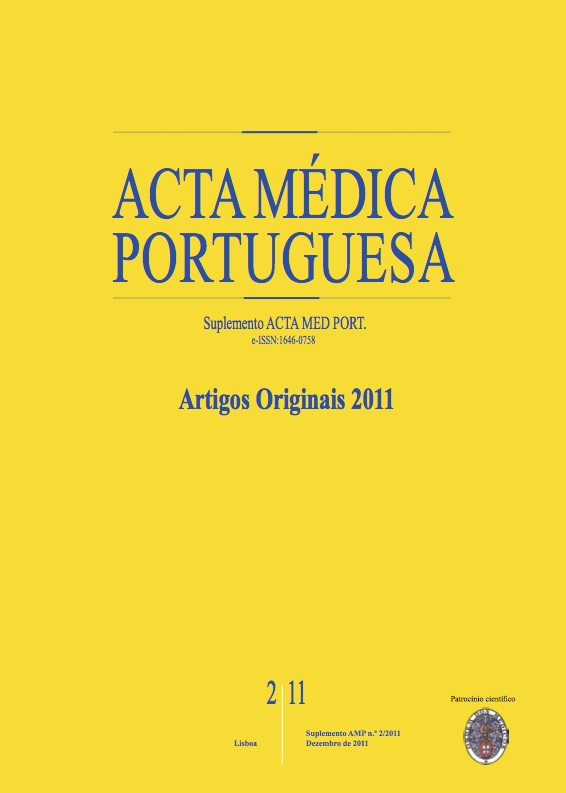Validação da importância dos critérios de referenciação propostos pela direcção geral de saúde para realização de ecocardiografia fetal.
DOI:
https://doi.org/10.20344/amp.1482Resumo
Congenital heart disease is the most frequent congenital malformation, affecting about 5-8 newborn per thousand live births. Nowadays it is possible to do prenatal diagnosis of these conditions with fetal echocardiography (EcoF) but because health resources are limited this exam must be ordered according to the criteria established by the Portuguese Health Department.Evaluate the importance of the referral criteria for fetal echocardiography attending to the cardiac anomalies identified. To determine prevalence and mortality rates in fetus with cardiac anomalies.Retrospective analysis of the clinical records of 733 fetus to which was performed EcoF in the Prenatal Cardiology consultation of a tertiary center of Pediatric Cardiology, between 2006 and 2008. Were registered demographic data, referral motif, EcoF results and follow-up data. The referral motif was classified in two groups: (I) The "Risk Group"--which referral was consistent with the Health department indications and this included major causes (family, maternal, fetal) and minor causes (other situations), and the "No risk Group" (II)--which referral wasn't consistent with those indications.During this period were performed 871 fetal echocardiograms to 705 pregnant women. The median maternal age was 32 years (15-45 years) and mean gestational age was 26 weeks (± 4 wk). The "Risk group" included 89.5% of the sample. Were identified 52 cases (7%) with cardiac anomalies in fetal echocardiography: 42 structural anomalies, 8 rhythm anomalies and 2 pericardial effusions. These abnormalities were distributed as follows: "Risk Group"--family cause (3), maternal cause (3), fetal cause (39), minor cause (5) and "No Risk Group" (2). The "Risk Group" had more cardiac abnormalities (6.8% vs 0.3%) (p>0.05), specially the "fetal cause subgroup" (p<0.05). Were missed on follow up 10 positive cases, there was 3 medical pregnancy interruptions and 3 children died. Eleven positive cases maintain follow-up on Pediatric Cardiology consultation.Most of the cases fulfilled the referral criteria established by the Health Department, but there was no statistically significant difference in the prevalence of fetal cardiac anomalies in pregnant women with and without risk factors. The fetal cause was the best related to the presence of cardiac disease. The prevalence of cardiac anomalies and the mortality rate may be underestimated in this sample due to the loss of positive cases in the follow-up.Downloads
Downloads
Como Citar
Edição
Secção
Licença
Todos os artigos publicados na AMP são de acesso aberto e cumprem os requisitos das agências de financiamento ou instituições académicas. Relativamente à utilização por terceiros a AMP rege-se pelos termos da licença Creative Commons ‘Atribuição – Uso Não-Comercial – (CC-BY-NC)’.
É da responsabilidade do autor obter permissão para reproduzir figuras, tabelas, etc., de outras publicações. Após a aceitação de um artigo, os autores serão convidados a preencher uma “Declaração de Responsabilidade Autoral e Partilha de Direitos de Autor “(http://www.actamedicaportuguesa.com/info/AMP-NormasPublicacao.pdf) e a “Declaração de Potenciais Conflitos de Interesse” (http://www.icmje.org/conflicts-of-interest) do ICMJE. Será enviado um e-mail ao autor correspondente, confirmando a receção do manuscrito.
Após a publicação, os autores ficam autorizados a disponibilizar os seus artigos em repositórios das suas instituições de origem, desde que mencionem sempre onde foram publicados e de acordo com a licença Creative Commons









